Pesticides in Organic Oatmeal & Oat Products
Written by:
Maia James
08/20/2018

Updated: 09/29/2023
Looking for a different guide? Browse them all HERE.
Are you worried about pesticides in organic oatmeal? We have been fielding a lot of questions about Roundup in oat products since news of EWG’s study on glyphosate broke the other day.
The thing that’s troubling my readers most is the headline that glyphosate was found in some of the organic product samples tested. I’m not worried about this, and I don’t think you should be either.
Why I’m Not Worried about Pesticides in Organic Oatmeal
Although 5 of the 16 organic samples tested positive for traces of glyphosate, none of these samples exceeded EWG’s limit of 160 parts per billion.
For example, while Bob’s Red Mill organic rolled oats averaged 12.5 ppb of glyphosate, Bob’s Red Mill conventional rolled oats averaged more than ten times that much (150 ppb, which is still slightly below EWG’s limit for safety).
And again, it’s important to remember that 70% of the organic brands had NO glyphosate detected in them (and 100% were below a concerning level).
By contrast, almost 70% of the conventional samples of oat products exceeded EWG’s safety limit for glyphosate residue (and only 4% of the conventional brands had no glyphosate detected).
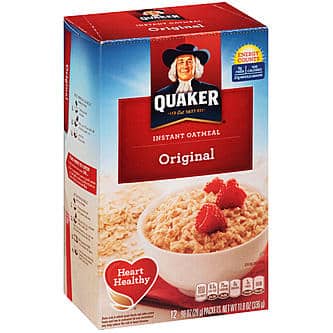
Some of these brands WAY exceeded safe limits of glyphosate: Quaker’s Instant Oats averaged a whopping 700 ppb, and even Barbara’s Multigrain Spoonfuls had 320 ppb.
(By the way: the safe limit for glyphosate set by EWG is 100 times lower than that set by the EPA.)
Bottom Line: Pesticides in Organic Oatmeal
I admit it, this new study is super depressing when I think about:
- The pesticide load to which the average American child is exposed, from the food they eat to the lawns they play on;
- The body burden of people who work with Roundup and other pesticides daily (like this guy, about whom I am sure you’ve all read);
- The health of the communities whose water is contaminated by agricultural run-off;
- The tremendously negative impact glyphosate and other pesticides have on the environment.
But here’s a small silver lining: this study offers convincing evidence that organic products–even highly processed ones from big brands like Kashi or Cascadian Farms–really are NOT contaminated with pesticide residues.
What We Can Do
For now, all we can do is vote with our dollars and support the companies selling organic foods, with confidence that these products really are worth the extra cost. (I would also argue we should vote with our actual votes to make sure we have good guys running the EPA!).
Stay sane,


Maia, Founder & CEO
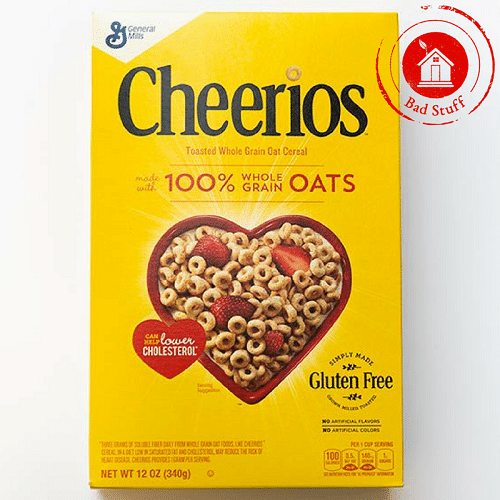
P.S. The timing of this report on oat products just made my job a little bit easier, since I am finishing up our Healthy Boxed Cereal Guide this week. I was debating putting regular old Cheerios under “The Okay Stuff,” since the ingredients aren’t so bad. Learning that Roundup contamination in Cheerios exceeds EWG’s safety limit by nearly five times makes my decision easy on this: Cheerios are Bad Stuff.
Note: This article contains affiliate links or sponsored content, which means that if you make a purchase, we may earn a commission. We only recommend products that meet our strict standards for non-toxicity and that we use (or want to use!) ourselves. Thank you so much for supporting the brands that make Good Stuff!
Enjoying this guide?
Join 60K families who rely on our free guides on everything from milk to mattresses! Sign up to get $5 off your first order, access to our ultimate Clean Products Cheat Sheet, and ongoing exclusive access to coupon codes and promotions. Our weekly newsletter is filled with well researched tips and tricks to live a toxin-free lifestyle.
Related Posts
Healthy Store Bought Oat Milk Guide 2024
Healthy Thanksgiving Recipes
Daylon’s Healthier Fried Chicken Sandwich
Healthy Yogurt Guide
-
Why can’t you list the good products that have no contamination! It’s like the consumer has to really dig to find good products. You would think with an article like this the list of the good products would be made readily available!
-
As we’re each individuals we should take that into consideration. Younger people can process toxins out of their system faster than older adults. Your environment, and the other foods that may be toxic build up in your system, exercise, overall general health, smoker, non smoker, what we use on our skin, etc. plus what we consume all lead to toxic overload.
-
Is there a cheerios-like cereal that is OK? My kids are going to be distraught at no-more cheerios!!
-
Hi Melissa, Have you tried organic oatios?
-
-
Appreciating the persistence you put into your blog and detailed information you provide.
-
Herbicides represent a high toxicity to target species but it can be also toxic, at different levels, to non-target species, such as human beings. Herbicides can cause deleterious effects on organisms and human health, both by their direct and indirect action,
-
-
Can you post a list of the brands that you tested and their results?
-
Thank you so much for this article. I give oatmeal to my 10 month old baby few times a week, few weeks ago there was the study about lead and other toxic chemicals in organic baby food, I was happy that I milled the organic oats myself, now this! It’s a bit exhausting! But I appreciate your hard work and all the research you do.
Much love
-
thanks for your kind words! Your baby is very lucky to have you are his/her momma.
-
https://www.organicvalley.coop/blog/what-are-pesticides-and-herbicides/Jan 24, 2020 – —
This website explains the usage of the terms herbicides and pesticides.
It explains that other living things, like weeds, fungi, and bacteria can be just as detrimental to crops as bugs, just as troublesome to farmers, and just as worthy of “pest” status. That’s why herbicides, fungicides, and insecticides are often referred to simply as pesticides.reply I looked up pesticides/herbicides and organic oats. I use Bob’s Red Mill Organic Rolled Oats or Thick Oats. They are very low all the negatives compared to most other brands. As a cancer survivor, I am very careful about what goes in my mouth or my grandkids’ mouths. I grind the extra thick oats to make an oat flour or meal in my single-serve smoothie attachment.
-
-
Glyphoshates are herbicides not pesticides. Roundup is an HERBICIDE!! Your article is wrong all the way through.
-
What would we have done without your deep insight and helpful contributing information…
-
You’re a troll, Robert was 100% right. This article is BS and wasn’t properly researched. Thats whats wrong with the internet, anyone can start typing and rehashing information that wasn’t properly researched nor educated on then we have trolls like you that discourage others that call it out. Adsense money is too lucrative for most and they churn out worthless articles for profit.
-
Roundup is a herbicide and it’s chief danger is in killing the beneficial bacteria in our digestive systems, a major cause of Leaky Gut, which leads to everything from cancer to heart disease. As a long-time vegetarian, it’s getting difficult to find safe foods.
-
In the realm of Public Health, herbicides are classified as pesticides.
-
-
-
it is a herbicide, not an herbicide. that does not make this artical wrong all the way threw. it still is proven to couse non hodgkin’s lymphoma, which is no joke. our bodies were not made to handle all the poisons that we theow at it all day every day. its absolutely discusting what we do to our food and what we are doing to our children. thank you for the article and shining a light on a problem. everyone can make there own mind up about what to do about it.
-
-
Well, if you think it’s safe go ahead and eat it, but I am not goona eat eat. I bet you are working for the company.
-
Hi Emily, We are surrounded by toxins unfortunately so there is no way to totally avoid them. Each person has to choose what they will or will not eat based on as much information as they can find. There is no perfect diet and if oatmeal is something that you want to eat, buy organic. I can assure you that we don’t work for any oatmeal company!
-
-
https://www.organicvalley.coop/blog/what-are-pesticides-and-herbicides/Jan 24, 2020 – —
This website explains the usage of the terms herbicides and pesticides.
It explains that other living things, like weeds, fungi, and bacteria can be just as detrimental to crops as bugs, just as troublesome to farmers, and just as worthy of “pest” status. That’s why herbicides, fungicides, and insecticides are often referred to simply as pesticides. -
https://www.organicvalley.coop/blog/what-are-pesticides-and-herbicides/Jan 24, 2020 – —
This website explains the usage of the terms herbicides and pesticides.
It explains that other living things, like weeds, fungi, and bacteria can be just as detrimental to crops as bugs, just as troublesome to farmers, and just as worthy of “pest” status. That’s why herbicides, fungicides, and insecticides are often referred to simply as pesticides.Reply
-


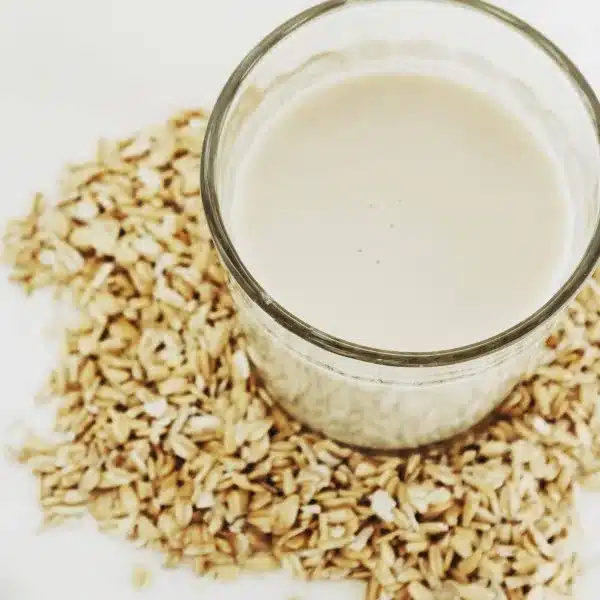

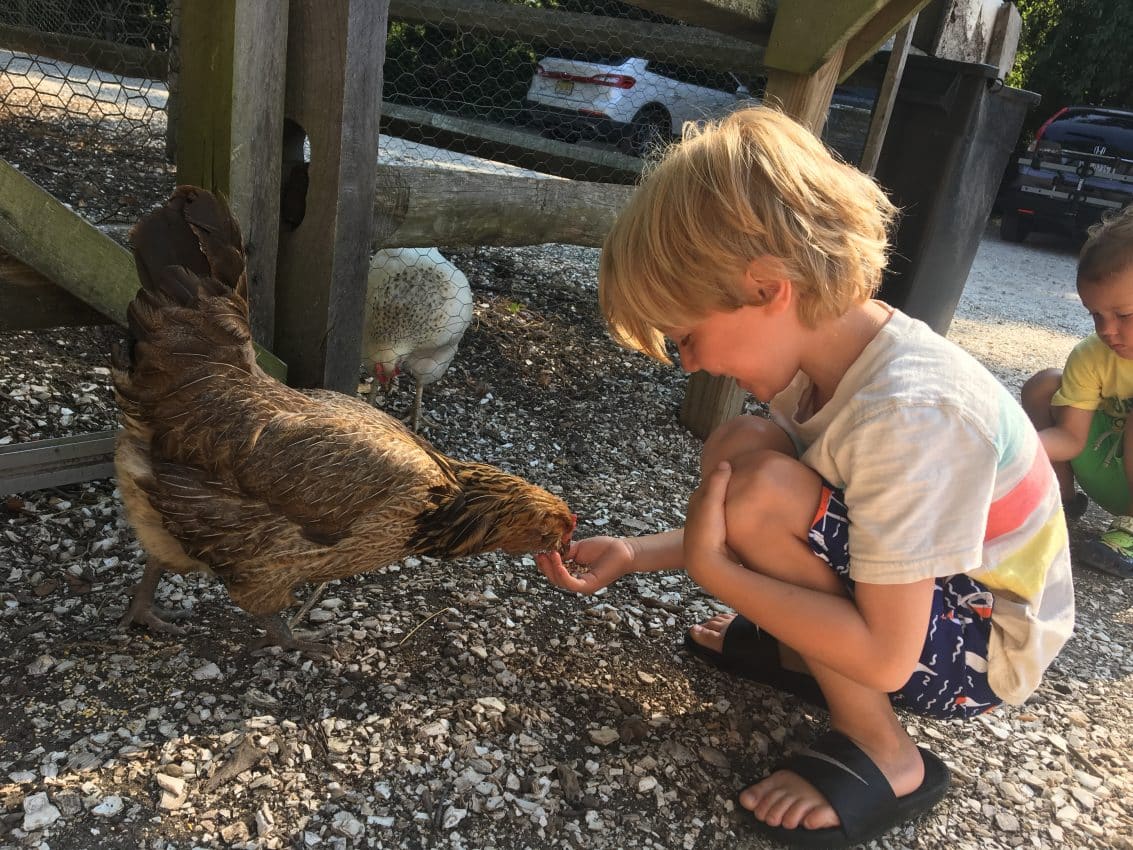
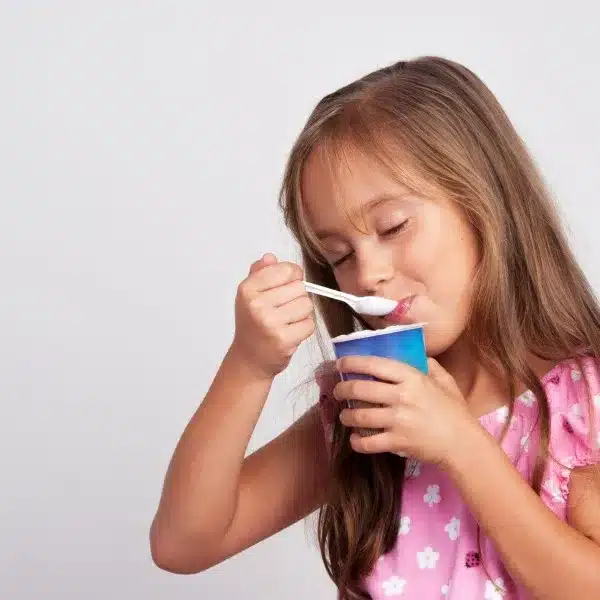
Leave a Reply
You must be logged in to post a comment.